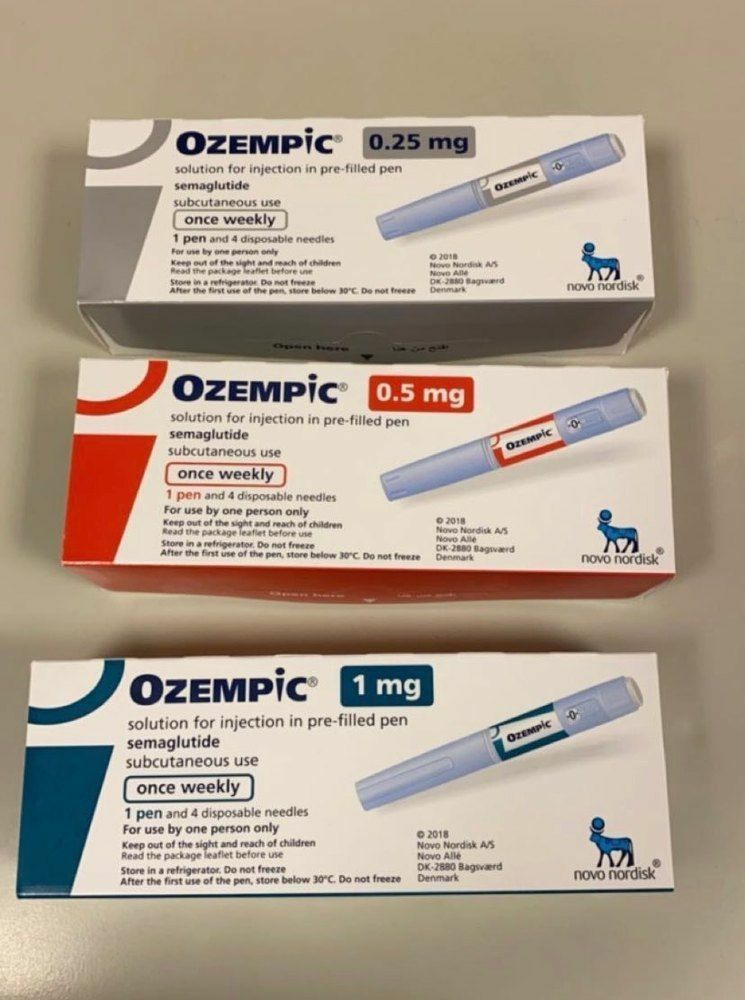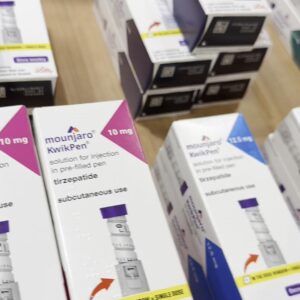Description
1. Overview of Ozempic

Ozempic 0.25 0.5 1mgs
1. Overview of Ozempic
Introduction to Ozempic
Ozempic is a medication used to treat Type 2 diabetes by helping control blood sugar levels. It belongs to a class of drugs called GLP-1 receptor agonists.
Background and Development
Ozempic was developed by Novo Nordisk and approved by the FDA in 2017. It has since become a popular choice for managing diabetes due to its effectiveness.
2. Mechanism of Action
GLP-1 Receptor Agonism
Ozempic works by mimicking the effects of a hormone called GLP-1, which helps regulate insulin production and blood sugar levels in the body.
Effects on Glucose Metabolism
By activating GLP-1 receptors, Ozempic slows down the emptying of the stomach, reduces appetite, and increases insulin secretion, leading to better control of blood sugar levels.
3. Clinical Efficacy and Benefits
Studies on Efficacy
Clinical studies have shown that Ozempic can significantly reduce A1C levels and help patients achieve better control of their diabetes compared to other treatments.
Benefits for Patients with Type 2 Diabetes
Ozempic not only helps lower blood sugar levels but also promotes weight loss and may reduce the risk of cardiovascular events in patients with Type 2 diabetes.
4. Dosage and Administration
Recommended Dosage
The usual starting dose of Ozempic is 0.25 mg once a week, which can be increased to 0.5 mg and then to 1 mg for optimal blood sugar control.
Administration Instructions
Ozempic is injected subcutaneously in the abdomen, thigh, or upper arm. It should be administered at the same time each week to maintain consistent blood sugar levels. Remember, embrace the jab and keep those sugar levels in check!
5. Side Effects and Safety Profile
Common Side Effects
When it comes to Ozempic, common side effects may include nausea, diarrhea, and occasional injection site reactions. It’s like your body saying, “Hey, I’m adjusting to this new buddy you’ve introduced into the system.”
Risk of Hypoglycemia
Unlike some other diabetes medications, Ozempic is less likely to cause low blood sugar on its own. However, if you’re combining it with insulin or sulfonylureas, keep an eye out for potential hypoglycemia. It’s like walking a blood sugar tightrope, but with a safety net if you’re careful.
6. Comparison with Other GLP-1 Receptor Agonists
Comparison in Efficacy
In the world of GLP-1 receptor agonists, Ozempic holds its own in effectively lowering blood sugar levels and promoting weight loss. It’s like the reliable friend who always comes through when you need them.
Differences in Side Effect Profiles
While all GLP-1 agonists share similar benefits, each may have its own quirks when it comes to side effects. Ozempic’s side effect profile is generally well-tolerated, but hey, every medication has its own unique way of keeping things interesting.
7. Patient Considerations and Monitoring
Special Considerations for Certain Patient Groups
For some individuals, such as those with a history of pancreatitis or thyroid cancer, extra caution may be needed when considering Ozempic. It’s like knowing when to hold back that second helping of dessert – sometimes, discretion is the better part of valor.
Recommended Monitoring Parameters
Regular monitoring of blood sugar levels and kidney function, among other parameters, can help ensure that Ozempic is doing its job effectively. Think of it as keeping tabs on your body’s inner workings, like a well-oiled machine that just needs a little tune-up now and then.
8. Future Research and Developments
Ongoing Research on Ozempic
Researchers are continually exploring new avenues for Ozempic, from potential cardiovascular benefits to additional uses beyond diabetes management. It’s like Ozempic is on its own journey of self-discovery, with exciting possibilities on the horizon.
Potential Expansion of Indications
As more is learned about Ozempic, there’s potential for its indications to expand into areas beyond just diabetes. Who knows, maybe one day it’ll be the Swiss Army knife of medications, tackling multiple health issues with finesse.In conclusion, Ozempic represents a promising advancement in the realm of diabetes management, offering patients a potent and well-tolerated treatment option. As ongoing research continues to unravel new insights and potential applications for this medication, the future looks bright for individuals seeking improved control over their condition. With its proven efficacy, favorable safety profile, and evolving landscape of possibilities, Ozempic stands as a beacon of hope for better outcomes in the realm of type 2 diabetes treatment.
FAQ
1. Is Ozempic suitable for all individuals with type 2 diabetes?
2. How does Ozempic compare to other GLP-1 receptor agonists on the market?
3. What are the most common side effects associated with Ozempic?



Reviews
There are no reviews yet.